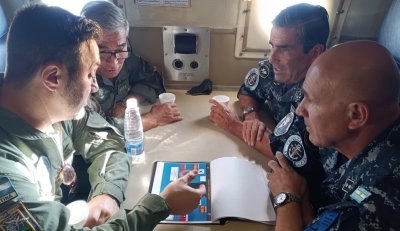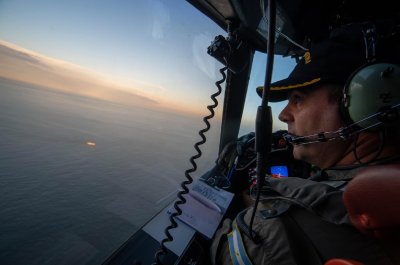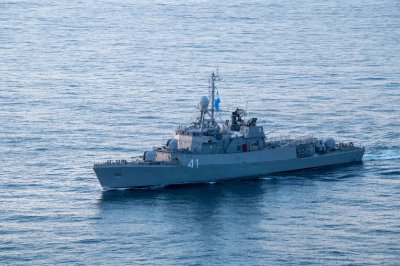Argentina Increases naval presence near Exclusive Economic Zone to Combat Illegal fishing
Argentina intensifies its maritime patrols in order to send a message to the foreign fleets that are gathering just outside of the exclusive economic zone. The move shows Argentina’s dedication to protect its marine resources, as well as combating illegal unreported and unregulated (IUU), fishing.
Distant Water Fishing – A Growing Problem
China, in particular, is a distant-water fishery that has increased concerns over the depletion and destruction of fisheries. This concern extends to developing countries’ waters. China’s fishing fleet will have 17,000 boats by 2020. Some experts, however, believe that this estimate is conservative. These fleets have been accused of IUU (illegal, unreported, and unregulated) fishing. This poses a serious threat to the marine biosphere as well as economic stability in countries such Argentina that heavily rely on their shortfin squid catch. Beijing maintains that, despite criticisms repeated over the years, it has strict control of its fishing activities in distant waters and does not accept these practices.
Argentina’s response: surveillance and control operations
To combat these illegal activities, the Argentine Navy initiated a “surveillance and control operation,” deploying two turboprop aircraft—a C-12 Huron and a P-3C Orion—alongside two corvettes. The operation, according to the official statement, aims at enhancing Argentina’s presence within its maritime area and deterring foreign vessel intrusions. The Minister of Defense Luis Alfonso Petri and other senior officials flew the P-3C Orion to a cluster of boats near the EEZ border, which is a 200-nautical mile zone where Argentina holds exclusive rights over natural resources.
1 Three (3)




While the international maritime law permits foreign vessels to fish outside of the EEZ without detection, it is known that many boats linger near the edge and then disable their Automatic Identification System transponders in order to enter the EEZ illegally. In a stretch of 100 miles just outside the EEZ, the surveillance team observed 380 boats fishing.
In these waters, the primary fishery is shortfinsquids. This lucrative species has a market worth over $2 billion per year. The shortfin squid is a valuable resource that attracts hundreds ships every year. Chinese ships make up more than two thirds of this fleet. Conflicts have been triggered by the encroachment into Argentine water in the past. A Chinese trawler was sunk in 2016 after it attempted to strike the coastguard vessel.
New Tactics: Flags of Convenience, Joint Ventures and Emerging Strategies
Chinese companies are increasingly looking for legal means to gain access to the waters of these countries. This includes leasing ships to local fishermen, or entering into partnerships with local shipowners in order to skirt strict regulations. Environmental Policy Circle is an Argentine charity that has uncovered approximately 10 Chinese ships operating in countries such as Cameroon, Vanuatu, and other “flags-of convenience”, to disguise their Chinese identities. They are owned and commanded by Chinese nationals, but they send the catches to China. This highlights the extent of the issue. These ships operate continuously in international waters just outside the Argentine Sea, under the “flags-of convenience” that come from Cameroon or Vanuatu.
………………
The Argentine Defense Ministry said in a press release that “we defend the Argentine Sea with all resources available to us.” “From [nautical] The Argentine Navy at mile 200 [ …] The Joint Maritime Command coordinates the patrols, watches and ensures that foreign ships do not cross our exclusive zone economic to plunder what belongs Argentines. We are prepared to take action in order to protect our sovereignty.
Regularity of Argentina EEZ patrols during shortfin Squid Season remains in doubt. Santa Cruz Governor Claudio Vidal was criticized after a recent trip to China. He signed a letter with Hongdong Fisheries Co. Ltd. a company accused of IUU fisheries and abuses of human rights. Hongdong Fisheries would provide support to Santa Cruz port in return for investments in infrastructure, such as shipyards, new fishing facilities and other projects in the province. This agreement has raised concerns about its environmental impact and control of maritime resources.


